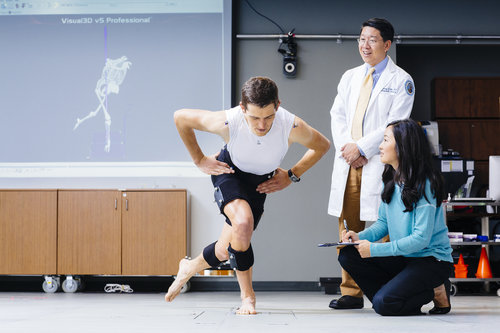
To help active indiduals make the most of their workouts, the UCSF UCSF Human Performance Center is offering a series of performance evaluations.
Each appointment includes the test, a personalized report, and expert consultation to help you understand your results. Note: this is a fee-based service.
Services offered include:
Lactate Profile Assessment
This assessment is for the endurance athlete looking to focus their training and track their progress. By measuring the lactate levels in your body during exercise, training zones, & recommendations can be specifically tailored to your physiology. This assessment is great for runners, cyclists, swimmers, rowers, and triathletes.
VO2max Assessment
The gold standard test of aerobic fitness. Using a treadmill or stationary bike, this test will measure your maximal oxygen uptake (aka. aerobic engine) and give insight into the metabolic fuel (fat vs. carbs) that your body uses at varying intensities. Great for the athlete looking to find their peak performance, or anyone looking to get more out of their cardio workouts.
VO2max with Lactate Profile
A combination appointment, you’ll receive the detailed training zones available with lactate profile testing, and the aerobic fuel demands determined with VO2max testing. This is a comprehensive appointment for the athlete looking for all their data points.
Body Composition Assessment
This 7-site skinfold assessment is a quick, easy, and accurate way to determine your body fat percentage. Tracking your body composition is the best way to track your weight management success.
Performance Consultation
This is a great place to start for anyone with questions about their training. Receive help & direction from our experts. Consultation topics can include: nutrition, strength training, exercise programming & periodization, endurance training, sleep, and biomechanics.
Metabolic Assessment
Metabolic testing is designed to determine your resting metabolic rate (also known as RMR or BMR) and fuel utilizations, from which personalized caloric needs can be calculated.
To learn more, visit hpc.ucsf.edu.


